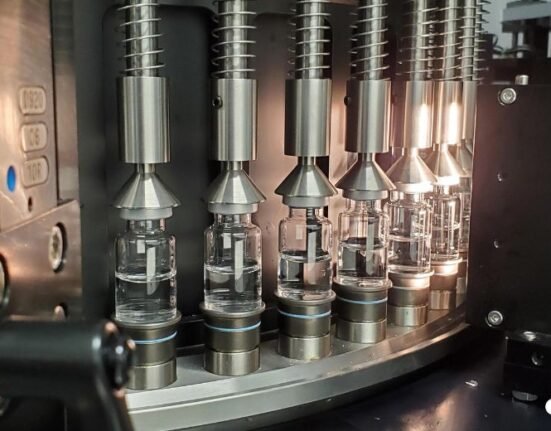HQ Team
June 20, 2023: Indian pharmaceutical company, Lupin Limited, has introduced its thiamine injection in the US market and has got FDA’s ‘no action required’ classification for its domestic facility in the country’s south.
The thiamine hydrochloric injection comes in multiple vials. Lupin’s alliance partner Caplin Steriles Limited received approval for its abbreviated new drug application from the United States Food and Drug Administration.
The injection is therapeutically equivalent to the reference listed drug, thiamine hydrochloride injection of Fresenius Kabi US LLC, according to a statement.
Thiamine is one of the water-soluble B vitamins. It is also known as vitamin B1. Thiamin is naturally present in some foods, added to some food products, and available as a dietary supplement.
Role in metabolism
The vitamin plays a critical role in energy metabolism and, therefore, in the growth, development, and function of cells.
Food sources of thiamin include whole grains, meat, and fish. Breads, cereals, and infant formulas are fortified with thiamine added to them.
Pork is another major source of the vitamin. Dairy products and most fruits contain little thiamine. Heating foods containing thiamine can reduce their thiamin content.
Pasteurization reduces thiamin content (which is very small, to begin with) in milk by up to 20%. Because thiamin dissolves in water, a significant amount of the vitamin is lost when cooking water is thrown out.
Processing also alters thiamine levels in foods; for example, unless white rice is enriched with thiamin, it has one-tenth the amount of thiamine in unenriched brown rice.
The causes of thiamine deficiency include lower absorption or higher excretion rates than normal due to certain conditions such as alcohol dependence or HIV/AIDS or the use of some medications.
Weight loss, enlarged heart
In its early stage, thiamin deficiency can cause weight loss and anorexia, confusion, short-term memory loss, and other mental signs and symptoms; muscle weakness, and cardiovascular symptoms, such as an enlarged heart.
The most common effect of thiamine deficiency is beriberi, which is characterized mainly by peripheral neuropathy.
People with this condition have impaired sensory, motor, and reflex functions. In rare cases, beriberi causes congestive heart failure that leads to edema in the lower limbs and, occasionally, death.
The World Health Organization recommends daily oral doses of 10 mg of thiamine for a week, followed by 3–5 mg daily for at least six weeks, to treat mild thiamin deficiency.
Thiamine hydrochloride injection had estimated annual sales of $35 million in the US in April 2023.
FDA inspection
Lupin, in a separate statement, announced that it has received the Establishment Inspection Report (EIR) from the FDA for its API manufacturing facility located in Visakhapatnam.
The EIR was issued after the last inspection of the facility conducted from March 6 to March 10, 2023. The inspection closed with the facility receiving an inspection classification of “No Action Indicated” or no enforcement action was required.
“We remain committed to ensuring the high quality of our products and ensuring the safety of our manufacturing processes,” Nilesh Gupta, managing director of Lupin said.








